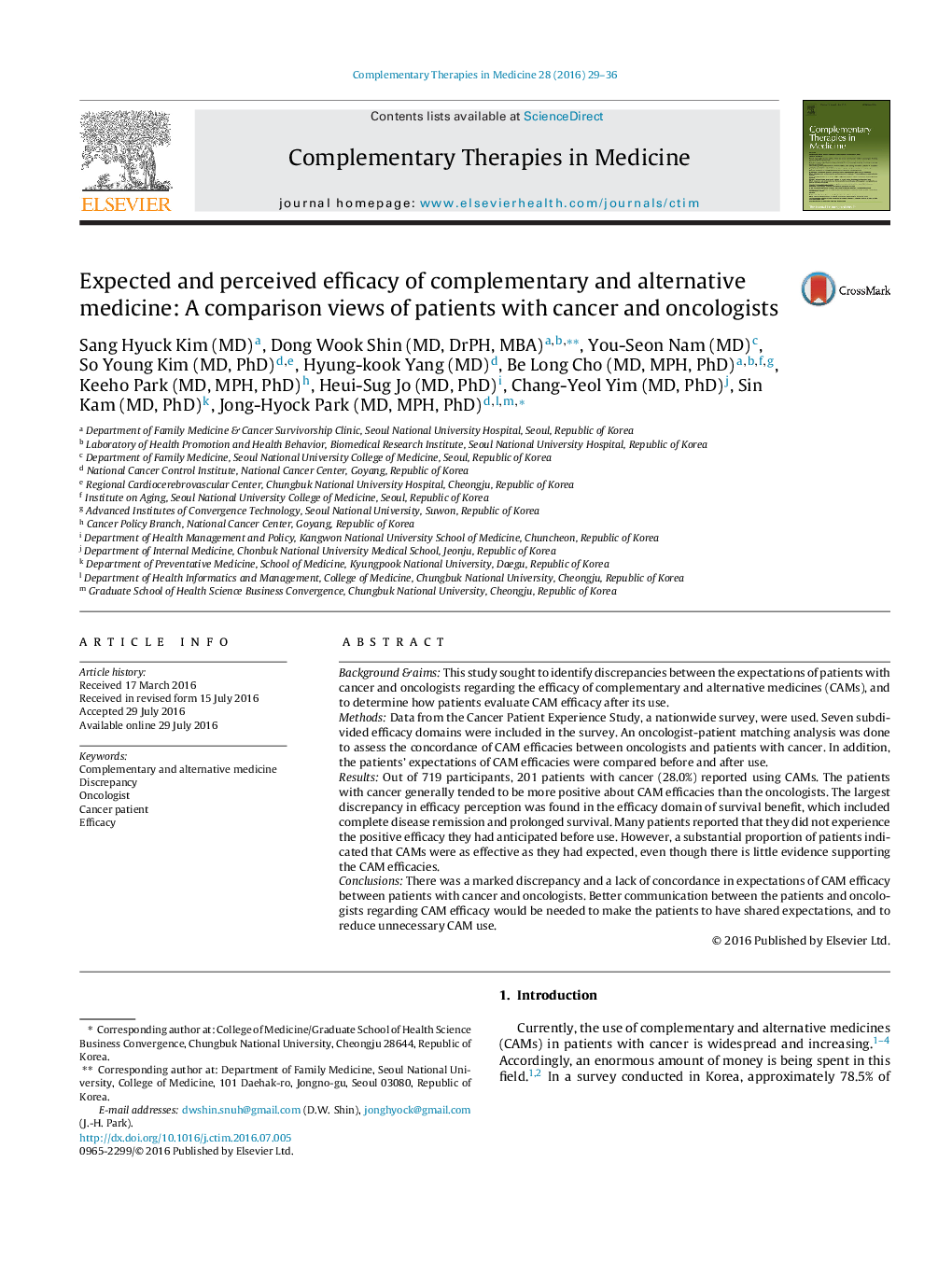| Article ID | Journal | Published Year | Pages | File Type |
|---|---|---|---|---|
| 2629094 | Complementary Therapies in Medicine | 2016 | 8 Pages |
•There was a marked discrepancy regarding expected CAM efficacy between patients with cancer and their oncologists.•The largest discrepancy was observed within the domain of complete remission of disease or prolonged survival.•Many patients with cancer reported that they did not actually experience the CAM efficacies they expected before use.
Background & aimsThis study sought to identify discrepancies between the expectations of patients with cancer and oncologists regarding the efficacy of complementary and alternative medicines (CAMs), and to determine how patients evaluate CAM efficacy after its use.MethodsData from the Cancer Patient Experience Study, a nationwide survey, were used. Seven subdivided efficacy domains were included in the survey. An oncologist-patient matching analysis was done to assess the concordance of CAM efficacies between oncologists and patients with cancer. In addition, the patients’ expectations of CAM efficacies were compared before and after use.ResultsOut of 719 participants, 201 patients with cancer (28.0%) reported using CAMs. The patients with cancer generally tended to be more positive about CAM efficacies than the oncologists. The largest discrepancy in efficacy perception was found in the efficacy domain of survival benefit, which included complete disease remission and prolonged survival. Many patients reported that they did not experience the positive efficacy they had anticipated before use. However, a substantial proportion of patients indicated that CAMs were as effective as they had expected, even though there is little evidence supporting the CAM efficacies.ConclusionsThere was a marked discrepancy and a lack of concordance in expectations of CAM efficacy between patients with cancer and oncologists. Better communication between the patients and oncologists regarding CAM efficacy would be needed to make the patients to have shared expectations, and to reduce unnecessary CAM use.
